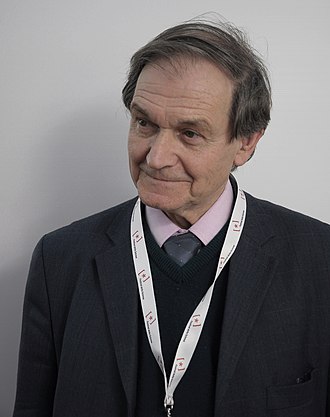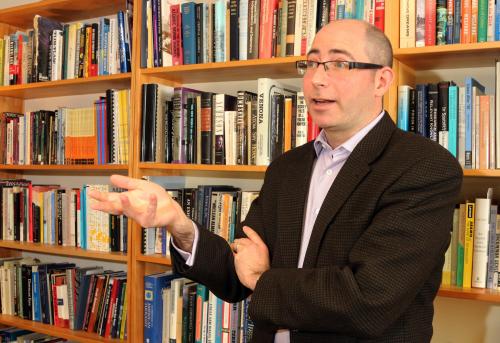Roger Penrose
University of Oxford

Title: The Journey from Black-Hole Singularities to a Cyclic Cosmology
Abstract:The “singularity theorems” of the 1960s, demonstrated that large enough celestial bodies, or collections of such bodies, would collapse gravitationally, to what are referred to as “singularities”, where the equations and assumptions of Einstein’s classical theory of general relativity cannot be mathematically continued. These singularities are normally expected to lie deep within what are now referred to as black holes, and would, themselves, not be observable from the outside. Nevertheless, their presence is regarded as fundamentally problematic for classical physics and it is argued that a quantum theory of gravity would be needed to resolve the issue.
Similar arguments (largely developed by Stephen Hawking) apply also to the “Big-Bang” picture of the origin of the universe, showing, again, the inevitability of a “singular” structure of such an initial state. However, a puzzling yet fundamental distinction between these two types of singularity is found, deeply connected with the 2nd law of thermodynamics. It is hard to see how any ordinary procedures of “quantization” of the gravitational field can resolve this problem, and it is argued, irrespective of the singularity issue, that the structure of quantum theory itself may be profoundly altered when gravity is involved.
Yet, a deeper understanding of the special nature of the Big Bang is obtained from the perspective of conformal geometry, removing the distinction between “big” and “small, and whereby the Big-Bang singularity, unlike those in black holes, becomes non-singular, and can be regarded as the conformal continuation of a previous “cosmic aeon”, leading to the picture of conformal cyclic cosmology (CCC) according to which the entire universe consists of a succession of such cosmic aeons, each of whose big bang is the conformal continuation of the remote future of a previous aeon. Some recently observed effects provide some remarkable support for this CCC picture.
David Kaiser
Massachusetts Institute of Technology

Title: Cosmic Bell Experiments: Testing Quantum Theory with the Cosmos
Abstract:For decades, physicists have conducted experimental tests of quantum entanglement, a phenomenon that Albert Einstein once dismissed as "spooky action at a distance." Despite Einstein's misgivings, the experiments have consistently found results compatible with quantum theory; today entanglement is at the heart of next-generation devices like quantum computers and quantum encryption. Yet every experimental test has been subject to one or more "loopholes," which (in principle) could account for the results even in the absence of genuine quantum entanglement. This talk describes the latest experimental tests of quantum entanglement, including my group's recent "Cosmic Bell" experiments that used real-time astronomical measurements of light from very distant quasars as random inputs, to determine which measurements to perform on pairs of Earthbound entangled particles. Our experiments provided compelling evidence that quantum entanglement is a robust feature of our world, while constraining certain types of alternative models---which exploit a particularly subtle loophole---more thoroughly than ever before.
Bio:
David Kaiser is Germeshausen Professor of the History of Science and Professor of Physics at the Massachusetts Institute of Technology. He is the author of several award-winning books about modern physics. His latest book, Quantum Legacies: Dispatches from an Uncertain World (2020), was honored as among the best books of the year by Physics Today and Physics World magazines, and also named a Choice Outstanding Academic Title. A Fellow of the American Physical Society, Kaiser has received MIT’s highest awards for excellence in teaching. His work has been featured in Science, Nature, the New York Times, and the New Yorker magazine. His group’s recent efforts to conduct a “Cosmic Bell” test of quantum entanglement were featured in the documentary film, Einstein’s Quantum Riddle.


